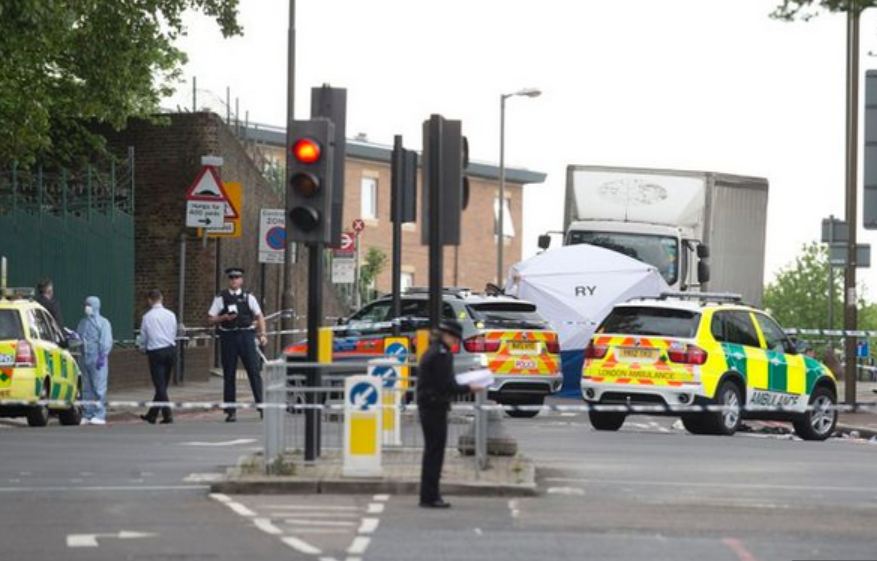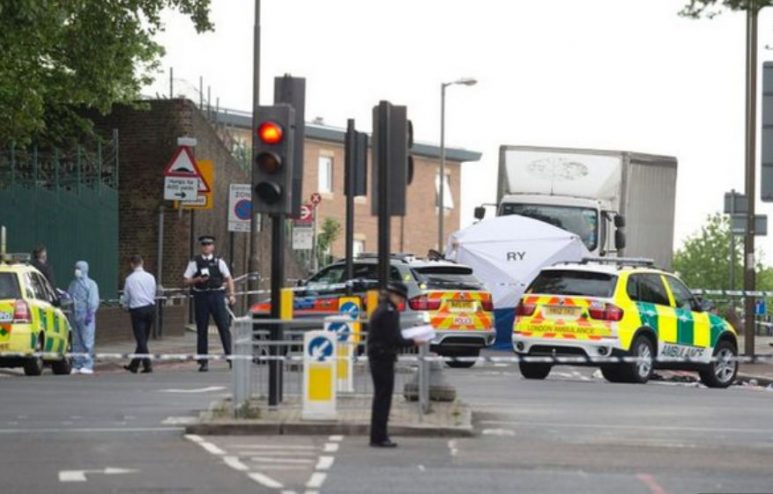Published: 31 May 2013
Region: UK, Worldwide
by Aidan White


The incident has also put the issue of hate speech squarely on the political agenda and posed fresh questions about responsible journalism.
At the same time there are political calls for new laws over hate-speech and privacy rights that could limit media freedom.
If this happens journalists may only have themselves to blame. The media firestorm around the killing has prompted a controversial debate about reporting which some people say has itself stirred up emotions and hatred.
Editors and journalists have hit back. They rightly argue that they have a duty to report the full story of the killing. Violence and extremism are uncomfortable facts of life. People need to know the truth.
But this was a story that media pushed to sensational limits. The focus on violence and the apparently endless repetition of the hate-filled messages of the killers may have reinforced ugly and dangerous stereotypes about Muslims and their place in British society.
The Press Complaints Commission received more than 80 formal complaints; most of them disturbed that on the day after the killing all but one national newspaper carried the same front page image of one of the attackers, with bloodied hands, delivering an unambiguous threat of more violence to come.
They may have a point. Journalism can be better than just repeating hatred and outrage; it can look for different angles and provide a perspective going beyond an invitation to the audience to wallow in the bloody violence generated by hate-mongers.
Too few stories in the immediate aftermath were laced with the type of context, background and thoughtful analysis that is needed to dispel bigotry and help people better understand the event and its impact.
Instead, acres of space were devoted to violent and inflammatory language on all sides including from a handful of far-right thugs in the English Defence League who tried to make instant political capital from the killing.
Other coverage tended towards a predictably divisive narrative of the kind found in the Daily Mail’s report on “the enemy within.”
The torrent of publicity had a predictable impact. The results of a survey immediately after the incident showed a rise in the number of people hostile to Muslims, fuelling concern of an explosion of race hate, even though closer analysis of the poll shows that tolerant attitudes remain strong across British society. At the same time there were reports of a huge increase in anti-Muslim incidents since the murder.
Summing up the role of media and politics Simon Jenkins made a telling comment in the Guardian: “It is this echo chamber of horror, set up by the media, public figures and government, that does much of terrorism’s job for it.”
Indeed, his own paper’s front page the day after showed just how easily hate-speech can seep into the public consciousness when reporting is sensationalist and insensitive.
The Guardian’s dramatic picture of the blood-soaked killer, meat cleaver in hand, with a banner headline of his chilling quote – “You People Will Never Be Safe” was an example of how media, as Jenkins says, “help convert mere crimes into significant acts.”
Inside the paper four pages were devoted to the killing. Pictures and quotes earlier and vividly reported by broadcasters and online sources were rehashed. Only one paragraph registered the response of the Muslim Council of Britain which resoundingly condemned this “barbaric act” and this was on page three.
With the hate-speech of extremism resonating across the media landscape, opportunist politicians chimed in with plans that could amount to a widespread assault on civil liberties.
Prime Minister David Cameron quickly announced the creation of a group aimed at fighting the “poisonous narrative” of Muslim extremists.
Meanwhile, his Home Secretary called for vastly expanded government surveillance powers. Theresa May wants the security services to have access to everyone’s internet and phone usage. Her Communications Data Bill, also known as the “snooper’s charter”, was shelved last month over privacy fears and now, on the back of one act of brutality by Muslim fanatics, it has been brought back to life.
May also warned, ominously, that “hate speech” laws should be altered to set the threshold for such rhetoric at a much lower level, a barely-disguised threat to crack down on media reporting that would silence hate-mongers but would also send a chill through newsrooms everywhere.
UK Privacy advocates have intervened to pour scorn on her proposals. “It is remarkable for politicians to be jumping to legislation to monitor the entire country,” warns Emma Carr of the UK’s Big Brother Watch. “All the evidence to date shows this horrific attack would not have been prevented by the communications data bill.”
While it took some days for most UK media to step back from the simple facts of this atrocious murder and provide a counter narrative, others made the effort. A CNN writer, for example, sought immediately to provide context for the killing by focusing on the threat posed by radical Jihad and the role of the Muslim community as an essential ally.
“An important element in the fight against this pernicious, callous enemy,” she writes, “is a campaign to undermine the ideology’s appeal within Muslim communities everywhere.”
Part of that campaign which involves journalists is to limit the spread of propaganda and language that incites further violence.
Hate-speech is not easily defined, but journalists have an ethical duty, and one that is also legally defined, not to publish words or images that cause harm by endangering individuals or communities.
It is not enough for journalistic truth-telling to reproduce the violent mantra of crazed religious zealots. Media have to ensure that when they do so they do not encourage yet more violence.
That is not so easy in the new world of information in which social media and the media audience play an increasingly important role in newsgathering and where hate speech is on the march.
A recent report from the United States, which enjoys the world’s strongest free speech protection, reveals a surge in hateful communications with social media providing a safe haven for bigots, religious extremists, racists, and homophobes.
Journalists need to distance themselves from this trend by strengthening the ethical base of media work. They can eliminate the problem of hate-speech if they tell the stories in context and can settle nerves through perceptive handling of the truth.
More professionalism is needed not just in reporting religious extremism such as the Woolwich murder and the Boston Marathon bombings, but also in coverage of the increasing acts of hate directed against vulnerable groups and minorities such as migrants, Roma or homosexuals.
This should not be an invitation to impose self-censorship or to dodge telling the whole story, but it is a call for humanity and values in the way we report. If we do that we could make things better.
